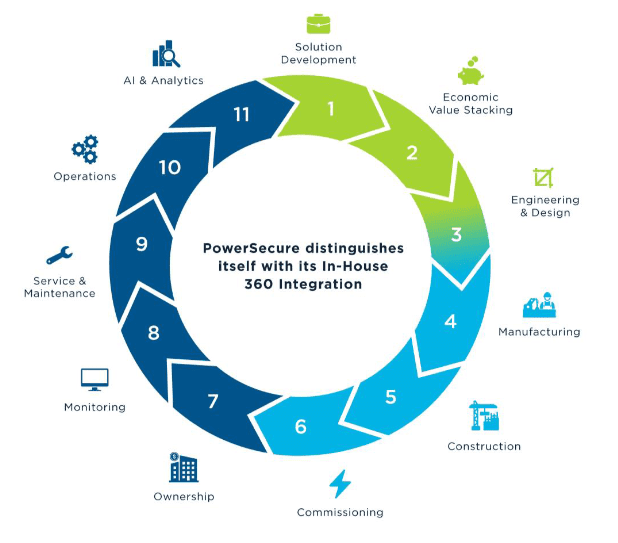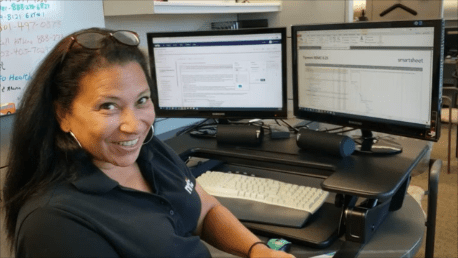CFC Webinar Is a Meeting of Cooperative and Corporate Minds
Randy Sukow
|

The latest guest for CFC’s Virtual Executive Conversation Series, held yesterday, was former Honeywell Chairman and CEO David Cote. It was the chance for a cooperative audience to pick up ideas and ask questions of a successful figure from the corporate world. The co-op figure CFC chose to interview Cote was none other than NRTC CEO Tim Bryan.
Bryan and Cote (pictured left to right) covered topics ranging from the national debt, to market trends to general philosophy regarding the importance of business in American society. “I always say that business is the biggest force for good that the world has ever seen because productivity is what drives standard of living,” said Cote, whose book, Winning Now, Winning Later: How Companies Can Succeed in the Short Term While Investing for the Long Term, was published by HarperCollins in June.
The conversation also turned toward questions of more immediate interest to rural cooperatives. “An area that has gained a lot more traction in the rural electric cooperative community in the last five or six years is broadband and pushing broadband further and further out in rural communities,” Bryan said. He asked about Cote’s views on broadband.
“One of my pet peeves when they used to talk about infrastructure spending … we talk about roads, ports, bridges, which are important, but at least as important and maybe more so is going to be superb broadband access everywhere in the United States,” Cote said. “There should be no place you can go where you can’t be connected.”
Bryan asked about the state of smart grid technology, which seems to advance at a rapid pace. At the same time, cooperatives could benefit from the certainty that comes with setting smart grid standards. Cote agreed electric utilities would benefit from standards, but “I do think there is an argument that says in the beginning competition reigns and you figure out what that best standard is when you know what seems to be winning. We do need to get there. I don’t see it happening anytime soon, though.”
Bryan noted that many rural cooperatives today face a skilled labor problem: “Co-ops tend to have an older workforce and a workforce that has been at the cooperative for a long period time. The turnover is starting and may accelerate in the next five to 10 years,” he said, referring to a comment from the webinar audience. How should cooperatives deal with the situation?
Cote recalled at one time having a similar problem with the Honeywell Aerospace Division. “We had a bunch of terrific, very experienced people who really knew their stuff. As we would bring in new people, we would buddy them up,” he said. A mentoring system proved the be an efficient way to gradually transfer institutional knowledge. “No matter how much stuff gets written down, there’s more. A lot of that needs to be passed along and we found that buddying up worked out pretty darn well for us,” he said.
Telework is another leading workforce issue as the COVID-19 pandemic has forced a large percentage of the U.S. labor force to operate from home. “What are your overall views on working remotely? Is it going to last? Is it not going to last? Or will there be some kind of hybrid model?” Bryan asked. “When we return to normal, what’s normal?”
The pandemic might have less effect on everyday work life than some expect. “I think when we return to normal, it’s going to look a lot like it did pre-COVID,” Cote said. “I’ve never been a fan of working from home … I’m kind of old-school about it. Some contemporary folks might say I’m a dinosaur, but I don’t think that’s how human beings are. Human beings are meant to interact.”


